I am standing in one of the cradles of American civilization, swaying in tattered Converse, a half hour walk from the site of the Big Bang. A band without a name is playing, maybe even channeling, a group of musicians from fifty years before. The drummer though—the drummer is the same, from where I’m standing just a few feet away even somehow looks the same, even though I know that can’t be true. Yet it feels true, for music tells the truth, and the beat remains the same.
And then Jody Stephens—seemingly immortal as the Mississippi River, in his black jeans as elegant as Hepburn in Givenchy—glides to the microphone, tilts his head, and warbles Won’t you let me walk you home from school? My right hand covers my chest, and almost startled, I begin to laugh quietly, then push my face into the crook of my elbow as I cry.
Church Rock, more or less Gallup, New Mexico, Polaroid SX-70 (all photos 2024)
BUT IT’S NOT “THIRTEEN” which propels me along a path carved into the Zuñi Mountains, toboggan pulled low over my ears, marveling as tiny beads of ice sprinkle around me. Jody had also sung “Way Out West,” just as he had when the boys recorded it in ‘73 for Radio City. That’s what got me to thinking it was time again to wander far afield of Mississippi.
I love my home, which is beautiful and rich and strange, but I also know it, or at least think I do. One way to fall in love again is to leave. There is much in this world I have never seen, much I hope to see, but in truth, I have no idea what I’m looking for, let alone how to find it.
So I head West, way out West, to see what there is to see.
East of Las Vegas, N.M., Polaroid SX-70
It’s on the road when I finally start to breathe again, can see the photo before it’s made, even though I’ve been in New Mexico for two days now. Sometimes it takes me a while to go through the airlock, when I haven’t written or made a photo in a while. Georgia O’Keeffe helped; I was mostly making pretty mediocre photos, then went up near her home in Abiquiú to see if that would help unlock how to fit all this gorgeous space into one little frame.
Of course the secret is the same as it always is: stop trying so hard, and just let the world talk to you. The world is vast there, but it was finally when I wandered out of a city when I could hear what it was trying to tell me.
And after that, it is absolutely on. The only question is whether you’re going to run out of film, whether you spent too much on the relic still standing in the parking lot of a fifty buck a night hotel somewhere in the desert. There is the constant tension of betting on what you’re seeing right now against what you might see tomorrow. Because out West, tomorrow can bring glory.
What was it the scoundrel wrote that time, the old King of the Beats? I first read it when I was eighteen, in Starkville, Mississippi—the farthest West I’d ever been at the time. I had never actually seen a copy of one of his books, although I had heard of them. The one bit that’s clung to me now for thirty years: “It was always mañana. For the next few weeks that was all I heard–mañana, a lovely word and one that probably means heaven.”
Homage to Wyeth, San Miguel County, New Mexico, Polaroid SX-70
Once thru the airlock, I could breathe again. I blared gods of the road on the stereo of a rented Chevrolet— Joni, Dylan, all those Laurel Canyon stars, Los Lobos, spent a full hour just listening to “The Love I Lost” performed by Harold Melvin and the Blue Notes. I was astonished by the landscape. One second you’d be in these pastoral fields, squinting to get the barbed wire and the hay in the frame, and the next there would be glorious jagged cliffs of red rock. One whole day I kept seeing a snow-capped mountain in the distance; it was never closer, never farther. I wore the same Nirvana sweatshirt I picked up at a discount store for ten bucks, didn’t change my jeans, ate too much, worried a little less.
Santa Rosa, Polaroid SX-70
I slept in motels and hotels along the way that were shining bright the day my dad was born, whose neon yet glowed, where Errol Flynn and Sidney Greenstreet and Jane Wyman had slept, where there was a fire roaring in the lobby and the A/C was cut off for the season, where you could open the windows and get under the blankets at night, or sit out in the courtyard and share with other travelers, no I just left Santa Fe, we are heading to Taos, my brother lives in Truth or Consequences.
We were from all over, the codes and symbols of our homes inscrutable to the mix of nomads and Westerners we were amongst. I listened to the Lobos stumble against the Cowboys as I drove through Albuquerque, but got to hear them go for two on a swinging gate before I bought a chocolate milkshake at a Blake’s. The radio faded in and out as I drove: Rudy Treviño doing the Tejano Gold Countdown, fragments of trap and pop, an announcer speaking in the regal and clipped syllables of what I slowly understood to be Navajo.
One night in Gallup, I drove past a place filled with smiling people and narrow brown vinyl booths. It looked like the coziest place I’d ever seen. I put my name on a list and stood outside, not too cold, under the neon sign for Jerry’s Cafe.
Inside, I drizzled honey over a warm sopaipilla, so happy and full after a dinner smothered in red chile I almost fell asleep in the booth, my Alabama ballcap pulled down over my eyes.
The back of Jerry’s menu featured the Beauty Way Prayer of the Diné people:
With beauty may I walk
With beauty before me, may I walk.
With beauty behind me, may I walk.
With beauty below me, may I walk.
With beauty above me, may I walk.
With beauty all around me, may I walk.
It is finished in beauty.
It is finished in beauty.
It is finished in beauty.
It is finished in beauty.
It was lovely and quiet and I was alone, not lonely, but in solitude nestled within the majesty and immensity of the universe. I was on the road.
Nighttime in Tucumcari, Polaroid SX-70
PASS
WITH
CARE
the signs along the 104 said, but there were no other cars. In the distance was a mountain range, or honestly what looked like a whole different planet just lifted up out of the very crust of the Earth. I pulled over and left the Chevy running. I walked towards the barbed wire, my boots crunching on rock and sand. I poked at a flattened can the color of a leaf on an oak before it falls in the winter, something more rust than metal. I knelt to look and see what it had been. I pulled into the Cactus Tree Motel to shower off the dust, Joni sang from the car. The top of the can had been pierced twice by a churchkey, a little triangle on one side with a bigger one on the other.
I looked up at the mountains. I thought about taking a picture of the old can. And I slept on the strange pillows of my wanderlust. I looked down at the rusted can, and back at the mountains. I walked back to the Chevrolet, and kept driving into the distance, towards a place I had never been, for dreams I did not understand.
Tucumcari at Sunset, Polaroid SX-70
“PASS WITH CARE” is a sign on a highway, but probably not a terrible way to live life in general, and certainly a decent way to handle yourself at this point in time. It is a chapter of GORJUS, a dispatch devoted to art and life in the South, held fast with instant film.
If you liked what you saw and read, if you maybe felt a twang in your belly while you looked it over, then this is for you, and I reckon we would be friends. Consider sending this letter to a pal who is like us. I’m gorjusjxn on Instagram, and you can see an archive of Polaroids at McCartyPolaroids.
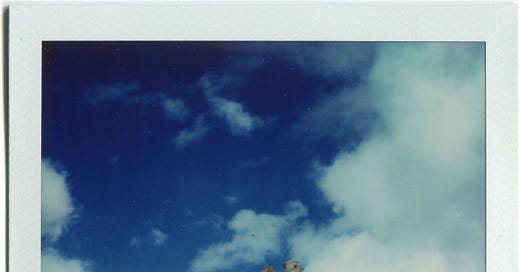




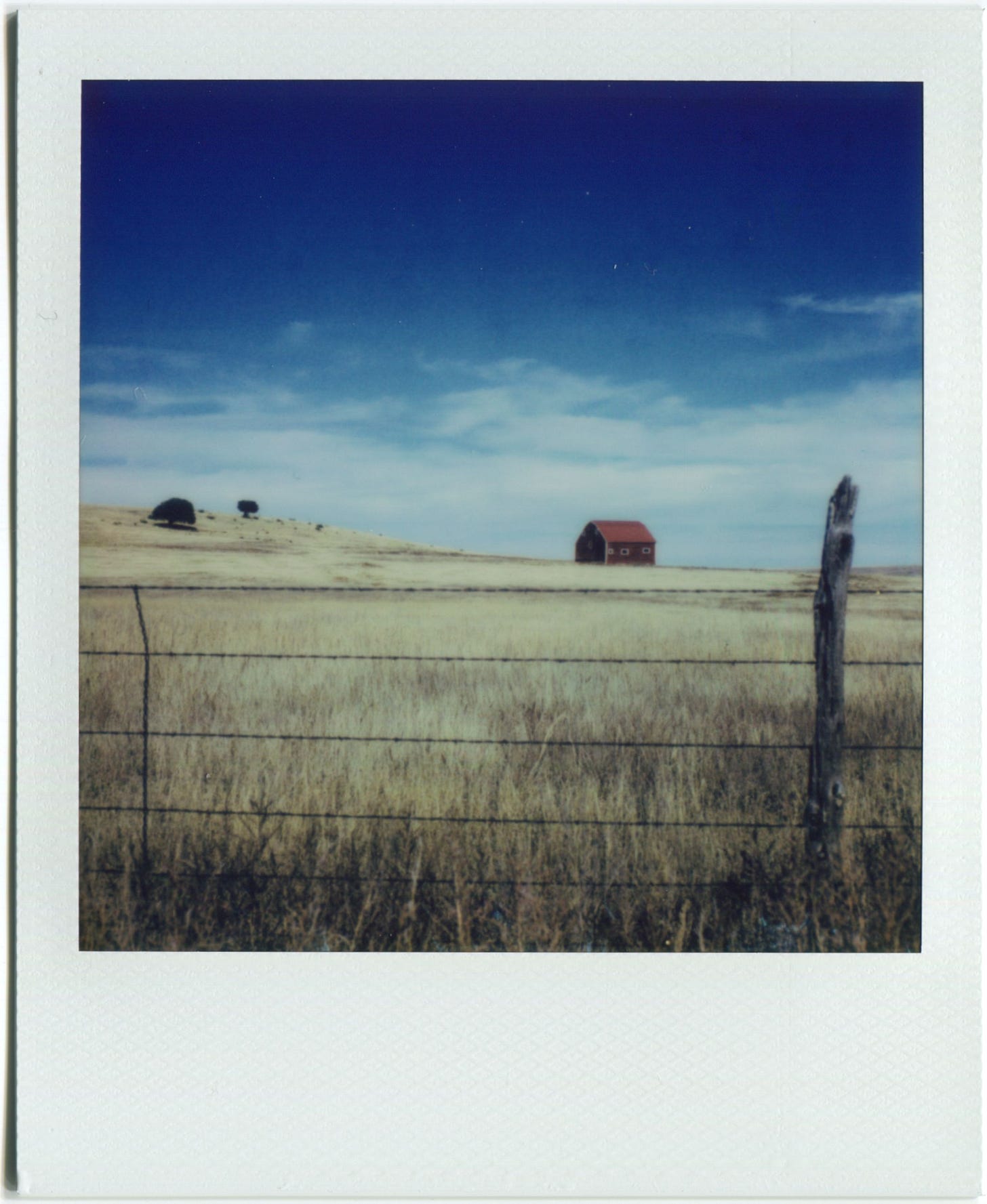
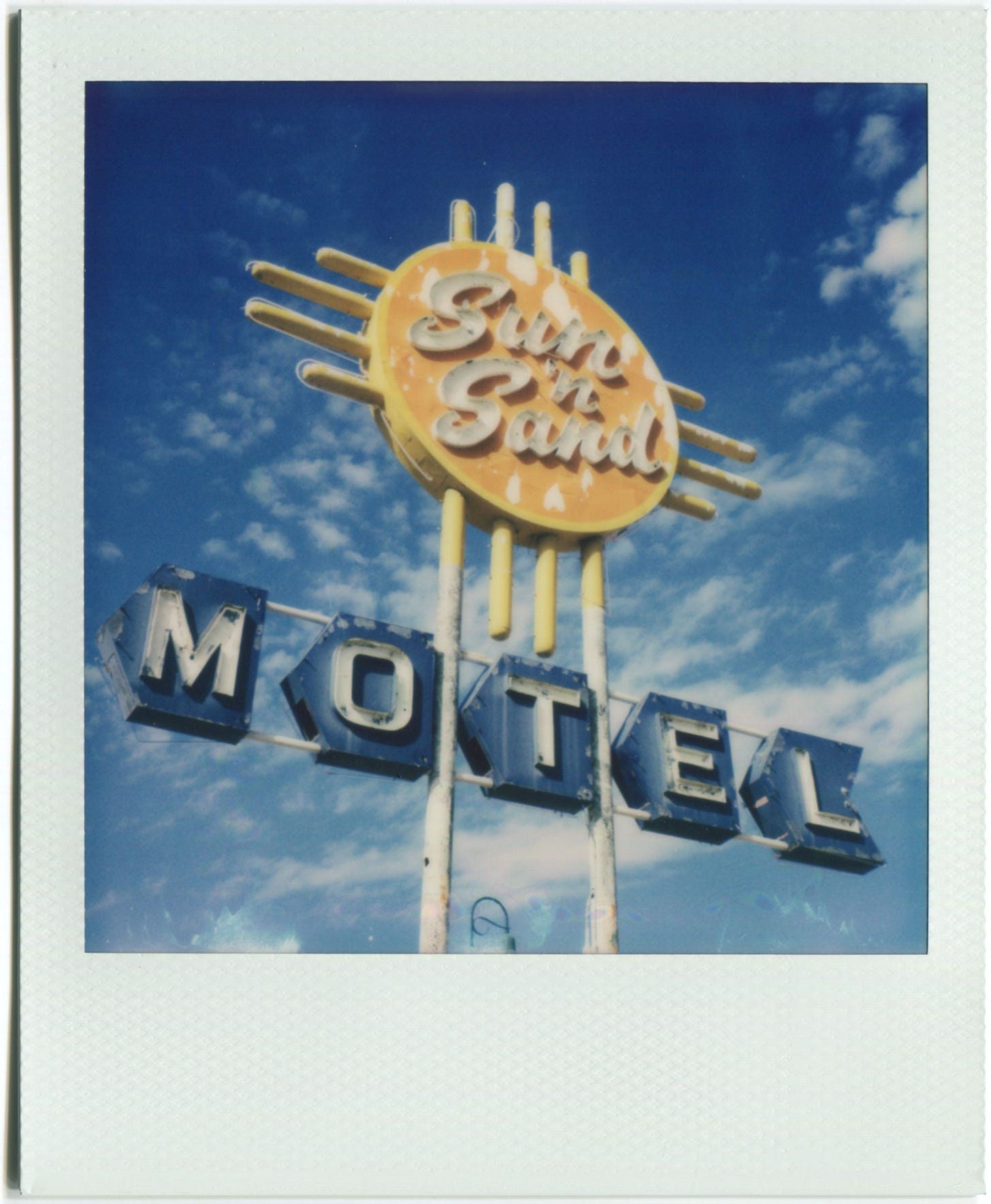
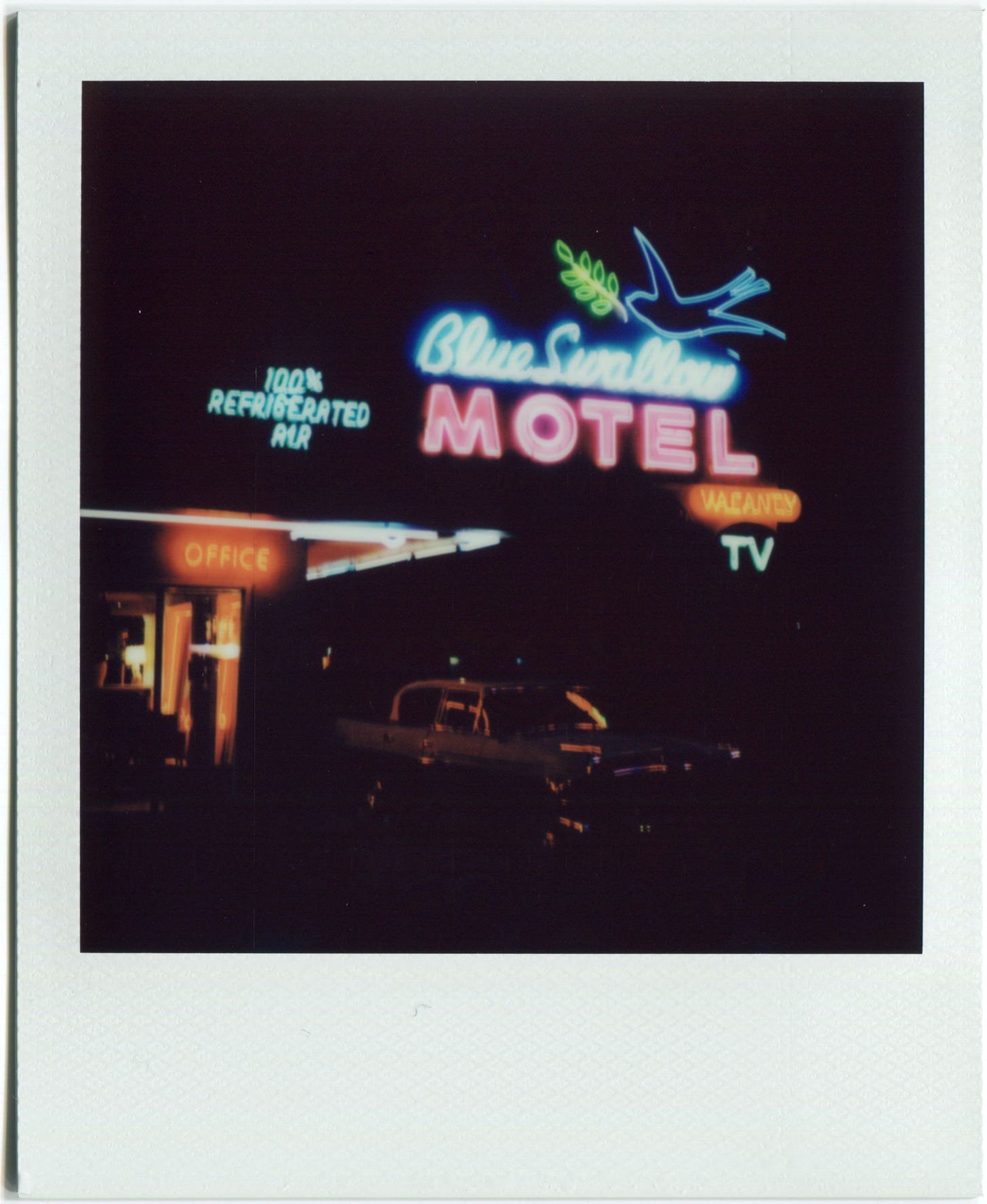
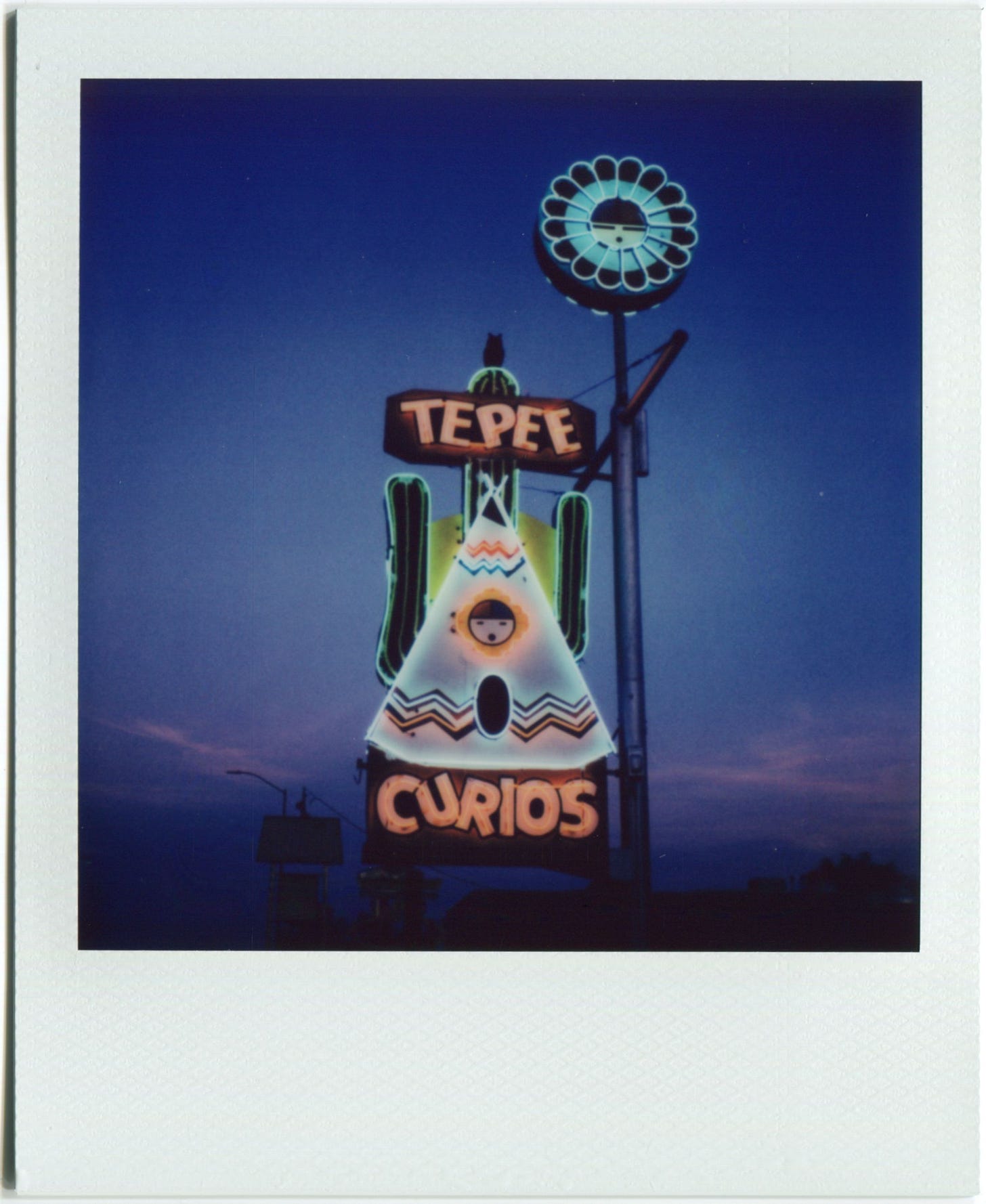
😭❤️🙏
Gorgeous stuff here, well done!